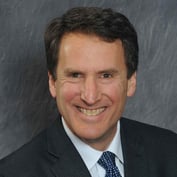How Planners See The Future Of The Profession
By
Philadelphia
Hundreds of financial planners jammed a 7 a.m. session here to hear what four prominent planners had to say about the future of the profession.
“Were in the wonderful position of helping to create something,” said Sheryl Garrett of the Garrett Planning Network at the Financial Planning Associations Success Forum here. “We can design how we want to get involved with clients lives.”
Garrett said she sees a lot of competition at the high end of the market, but “for us to truly emerge as a profession, we have to provide financial advice to all people who need it.”
She presented the choice this way: “Do we only do comprehensive financial planning or do we take a more comprehensive approach to financial planning?” For her part, Garrett said she does the latter so she can serve “all people in the way they need it.”
Among the trends that Joe Votava Jr. of Nixon Peabody LLP sees emerging in the profession are more technical competence among practitioners, a client-centered fiduciary approach, and the continued integration of traditional disciplines “but also the use of more psychology” in dealing with clients.
Additionally, Votava sees more competition ahead, both for solo practitioners and for larger firms.
According to Dick Wagner, principal of Worth Living, LLC, the notion of the profession is changing dramatically with movements to “wisdom advisors” and to “craftsmen.”
In terms of relating to clients, Wagner said, “Its on our plate to talk about money, but we tend to ignore it.” Planners, he continued, need to look at the negatives and positives regarding money.
“Its all right to talk about dreams,” Wagner said, “but maybe we need to talk about survival,” particularly in view of how shaky some government programs may be in the future.








 November 06, 2003 at 07:00 PM
November 06, 2003 at 07:00 PM










